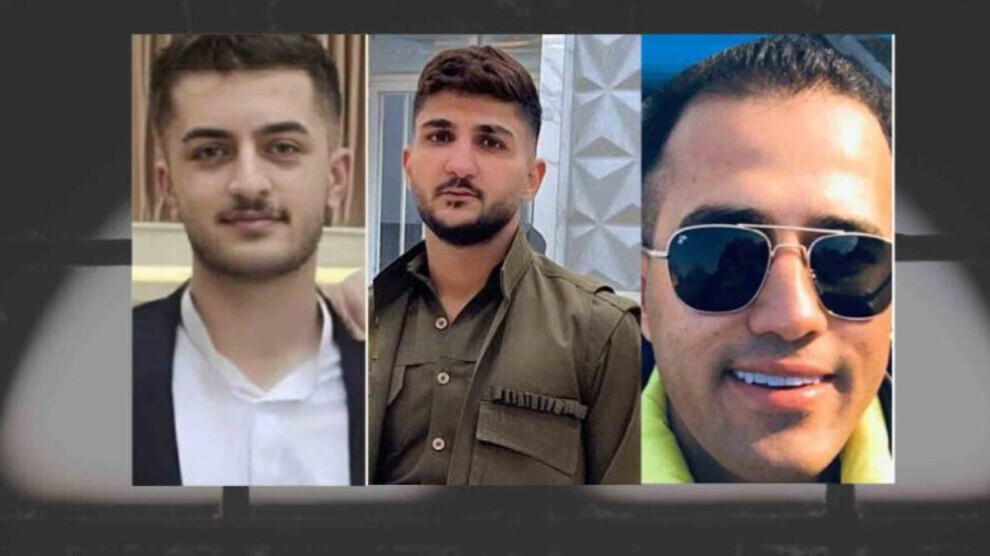Detention of three Kurdish men in Iran extended amid fears of death penalty
The three Kurdish men have been in detention for over a year for their alleged “involvement in the murder of a security officer” during the ‘Jin, Jiyan, Azadi’ uprising.
The three Kurdish men have been in detention for over a year for their alleged “involvement in the murder of a security officer” during the ‘Jin, Jiyan, Azadi’ uprising.

The Public and Revolutionary Prosecutor’s Office in Bukan, West Azerbaijan Province, has extended the temporary detention of Kurdish civilians Rauf Sheikh-Maroufi, Mohammad Faraji and Kamran Soltani for two more months, Kurdistan Human Rights Network (KHRN) reported.
The three Kurdish men, who were previously charged with “spreading corruption on earth” (efsad-e fel arz) for their alleged “involvement in the murder of a security officer” during the anti-government ‘Women, Life, Freedom’ uprising in Bukan, have been in detention for over a year.
The extension of their temporary detention, in light of the charge against them of ‘spreading corruption on earth’, which carries the possibility of the death penalty in Iran, has raised concerns that they may be sentenced to death.
Sheikh-Maroufi, Faraji and Soltani were arrested by security forces in Bukan during the protests on 26 December 2022, 22 February 2023 and 27 February 2023 respectively, and taken to the Ministry of Intelligence detention centre in Orumiyeh, West Azerbaijan Province.
The Ministry of Intelligence subjected the three individuals to torture in solitary confinement and pressured them to make forced confessions in connection with the charge of “involvement in the murder of a security officer” in Bukan.
Despite being subjected to severe physical and psychological torture, all three have steadfastly denied the charges.
At the end of the interrogation period on 10 June 2023, the three men were transferred to Bukan Prison, where they remain in pretrial detention pending further developments in their case.
They have been denied the right to choose their own lawyer, with a state-appointed lawyer assigned to them.
According to Article 286 of the Islamic Penal Code, “Anyone who extensively commits crimes against the physical integrity of individuals, crimes against domestic or foreign security, dissemination of falsehoods, disruption of the country’s economic system, arson, and destruction, etc., is considered a corrupter on earth.”